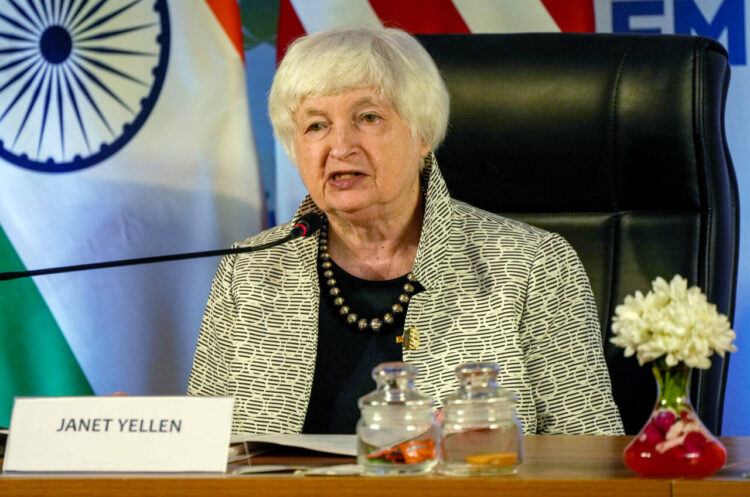In a series of high-level talks held in China, US Treasury Secretary Janet Yellen expressed strong reservations regarding the proliferation of underpriced Chinese goods flooding global markets, adversely impacting industries worldwide. Yellen emphasized her stance during a press conference at the US ambassador’s residence following four days of discussions with officials and business leaders in Guangzhou and Beijing.
Central to Washington’s concerns is the perceived imbalance created by Chinese government support, resulting in an oversupply of products like solar panels and electric vehicles, thereby stifling growth in similar industries abroad. Yellen cited historical instances, such as the flooding of global steel markets with below-cost Chinese steel over a decade ago, which inflicted significant damage on industries worldwide, including in the United States.
While Yellen underscored the necessity for some change in Chinese policies, she refrained from outlining specific actions the US might take, emphasizing a preference for bilateral dialogue over confrontation. She reiterated that the US did not seek to sever ties with China but called for a more balanced trade relationship.
Despite bilateral tensions on industrial issues, Yellen acknowledged areas of cooperation between the two nations, particularly in addressing climate change, debt restructuring, and combating money laundering. However, she also raised concerns about China’s support for Russia’s military procurement efforts, emphasizing the importance of transparency and predictability in economic and security matters.
Chinese officials, while engaging with Yellen’s concerns, urged a market-oriented approach to addressing excess capacity issues and expressed their own apprehensions regarding US sanctions and tariffs. Both sides discussed the sensitive issue of data protection, with Yellen noting the US Congress’s scrutiny of TikTok and China’s own restrictions on US social media platforms.
While Yellen’s meetings with senior Chinese officials signal a positive step in dialogue, observers caution that substantive changes in China’s economic policies may require more significant incentives or consequences. Nonetheless, both sides remain committed to cooperation in technical areas, such as tackling money laundering, to improve bilateral relations.

















Comments